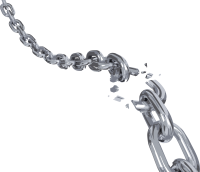السلام عليكم ورحمة الله وبركاته
Questioner: O Shaikh! You said concerning the hadith about giving the adhaan in the ear of a newborn child that its chain of narration is weak?
Al-Albaani: Yes.
Questioner: You said that its chain of narration is weak, is that statement correct, O Shaikh?
Al-Albaani: Yes, yes, correct.
See the explanation below inshaa Allaah.
Questioner: Our Shaikh, the question is: is the hadith about giving the adhaan in the ear of a newborn child established? I heard that it’s da’eef, should we act on it?
Al-Albaani: No.
Questioner: What do you advise us to do?
Al-Albaani: My advice: [and] this is a clarification for the people, I used to hold that the adhaan in the ear of a newborn child was legislated, aware of the fact that the hadith which states that it is a Sunnah to do so in the ear of a newborn child was reported in Sunan at-Tirmidhi with a weak chain of narration, but I follow the path of strengthening weak hadiths with supporting narrations.
I had found a supporting narration for this hadith in Ibn al-Qayyim’s book well-known as, ‘Tuhfatul-Mawdood bi-Ahkaam al-Mawlood,’ where he had ascribed this supporting narration to al-Baihaqi’s Shu’ab al-Eemaan, and even though he had stated that its chain of narration was weak, I regarded this statement of his to mean that the chain of narration was not severely weak [but just weak]. Based upon that, I considered it to be a supporting narration for the hadith of at-Tirmidhi which is from the narrations of Abu Raafi’.
In those days Shu’ab al-Eemaan was not available, not in manuscript form or as a printed book, [and] as many of you know despite my presence in the Dhaahiriyyah Library which has thousands of hadith manuscripts, this book, Shu’ab al-Eemaan of al-Haafidh al-Baihaqi, was not present in it, in fact it was not present in most of the world’s libraries.
Nowadays it has been published and added to the Islamic libraries, it is an extremely valuable book which has many hadiths which are not found in the six books [of hadith] or, in fact, others too. From these hadiths is the one which I had relied upon Ibn al-Qayyim about, in terms of it being a supporting narration for Abu Raafi’s hadith in Sunan at-Tirmidhi.
[When I read it] all of a sudden [I found that] Imaam al-Baihaqi reported this [supporting] hadith in his book Shu’ab with a chain of narration which had two narrators accused of being liars—so at that point it became clear to me that Ibn al-Qayyim, may Allaah have mercy om him, was lax/lenient when he stated that the hadith’s chain of narration was only weak—what is correct is that it is very weak.
In this situation it is not allowed for someone who works in the science of hadith to take something which is very weak as a supporting narration for something which is not very weak.
At that point I had no choice but to retract the declaration that the hadith of Abu Raafi’ found in Sunan at-Tirmidhi was strengthened by the hadith in Shu’ab al-Eemaan, due to it being severely weak, so [the end result is that] Abu Raafi’s hadith stayed weak.
And I, according to what Allaah has guided me towards in terms of the impermissibility of acting on a weak hadith, went back to the stance that: so long as the chain of narration of Abu Raafi’s hadith is weak and its supporting narration is even weaker than it, then [the end result is that] the weak hadith stays weak as it is, and I retracted my previous stance of the adhaan in the ear of a newborn child being a Sunnah or something legislated.
This is the answer to the question.
Al-Hudaa wan-Noor, 562.
Source: thealbaani.site








